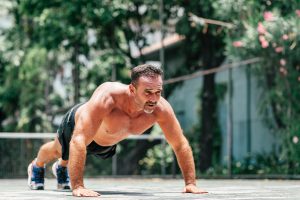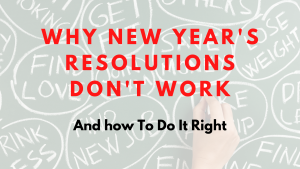
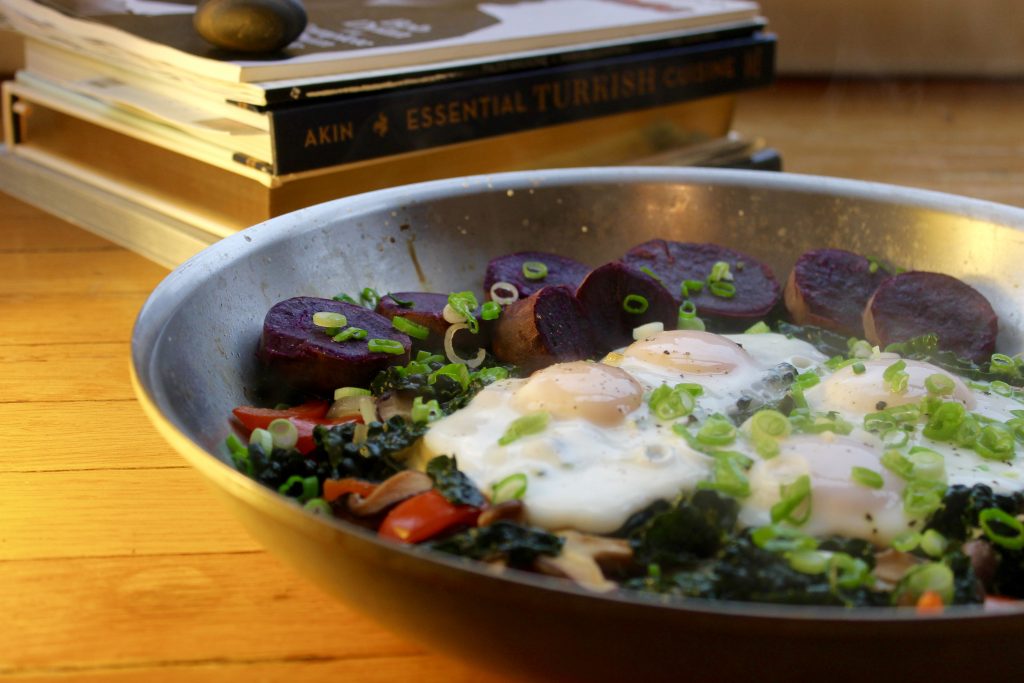
Let me start by saying this: no, breakfast is not necessarily the most important meal of the day. This is one of those ancient nutrition clichés that our grandmothers told us and were probably told by their grandmothers. I’m not saying breakfast is not important. After all, on an intuitive level, our grandmothers were right about many things, especially about what and how to eat. Breakfast may be very important for some people.
What I’m saying is, as always—and I know I sound like a broken record here—that there is no “one size fits all” in nutrition, and the individual reality of every one of us is always way more complicated to fit into an all-inclusive, simple rule.
Any meal of the day can be the most important one or not important at all. The importance of breakfast, as with any other meal, should be determined in the general context of a person’s eating habits and lifestyle. For example, if you’re someone who has his dinner relatively early, say 7pm, and breakfast for you is 8am, then breakfast may be pretty important, because, in this case it fulfills the inherent purpose of its name: it stops, or breaks, the night fast.
In the paleo world, intermittent fasting is a very popular concept, and it is basically about skipping breakfast and continuing the night fast all the way to the next day’s lunch (which, in this case, turns to be the breakfast of the day).
Have a Real Meal
The way I see it, what’s much more important here is what exactly you eat in your first meal of the day, assuming that you break a fast of 10-16 hours.
I can tell you what i hope is NOT your breakfast: first, the all American junk food disguised as a healthy breakfast: cereal and milk. For decades marketers convinced us that these sugary, highly processed corn flakes were a healthy breakfast. I’m not sure what that indicates more – their immense influential power on us or our ignorance as food consumers.
coffee and bagel? i’m including these in the same category. Even the holy grail of “healthy” breakfast, oatmeal, is not sufficient. If you’re an active person, who needs the energy and vitality to get up in the morning and work through life’s challenges (who isn’t?), then all of these traditional breakfasts wouldn’t do anything for you but leave you irritated, unable to focus, and with a headache by 11am.
If you’re one of those who feel a crash in your energy level before lunch, it might be related to the fact that you didn’t have any breakfast. If you consider the pastry and cup of coffee you hastily eat on your way to work as breakfast, I’m sorry to break the news to you: it is not.
This kind of breakfast will provide you with a short energy boost by quickly causing a spike in your blood sugar level, only to crash you down before you know it. And the roller coaster begins.
Even more common is the early afternoon crash people feel. It’s 2 or 3pm, and you feel like you have to have your cup of coffee and something sweet. Sounds familiar?
This, too, may be related to a compromised breakfast or no breakfast. In that sense, breakfast may be the most important meal of the day, because it sets the “tone” for the rest of your day. It acts like an anchor-meal that determines your energy level during the whole day.
Protein and Fat
You want your first meal of the day to be a real meal, just like lunch or dinner. That means that, after your night fast and before your busy day, you want a meal that will provide you with a nourishing, high-quality fuel, and, if you’ve been following what I believe in long enough, you know already that I mean good, quality fats and proteins. Some good carbs can be represented, but they should be your sideshow.
Now, I know what most people reading this are thinking: who’s got time to prepare breakfast?
To that I say: you will need to clear some time for that, meaning getting up earlier, but not too much. Preparing a real breakfast shouldn’t take more than 15 minutes. As always, planning and making sure you have the needed ingredients is important. This is how my typical breakfast looks: 2 eggs cooked over a quick vegetable sauté with some yams or potatoes that I cooked the evening before. To that I’ll add some good, fatty ingredient like avocado, a piece of hard cheese, or sesame tahini. Done. You can prepare endless variations according to this principle.
Shakshuka
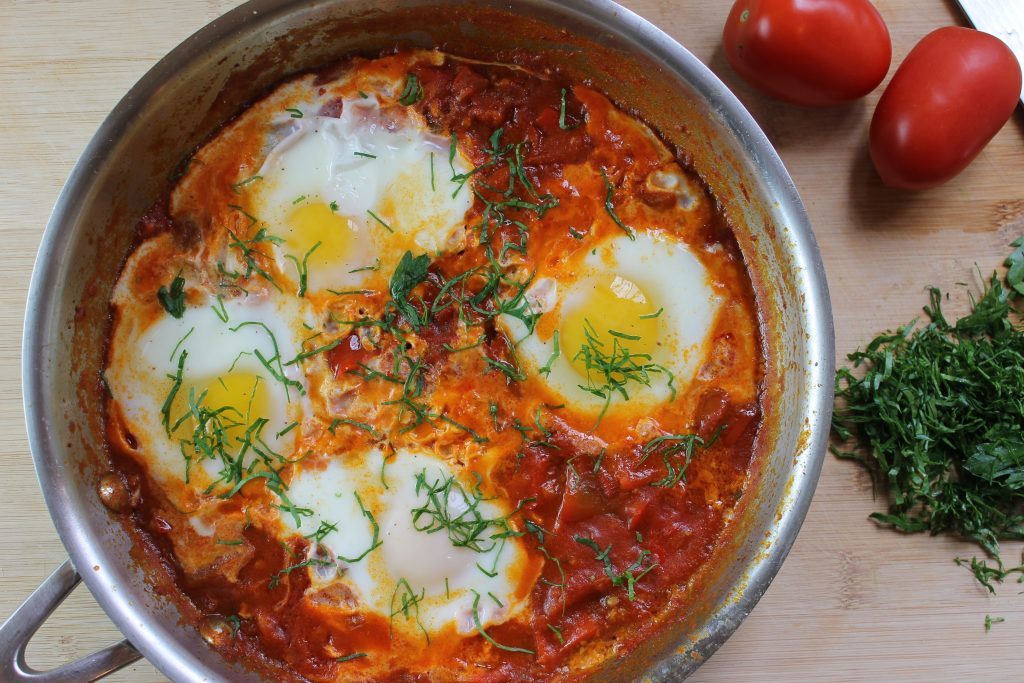
Shakshuka is a Tunisian dish that is popular all over the Middle East. This is my favorite paleo breakfast recipe:
6-7 very ripe tomatoes-chopped
2 red bell peppers cut into half-inch cubes
1 small chopped jalapeno pepper
2 garlic cloves
0.5tsp ground cumin
0.5tsp-smoked paprika
4tbs olive oil
4 pastured eggs
1tbs tomato paste
In a large frying pan heat the olive oil with the cumin and smoked paprika.
Add the red bell peppers and the jalapeno and stir over medium heat for 5 minutes. Let the peppers to caramelize a little but not to burn.
Add the tomato paste and stir for a minute. Add the garlic and stir for another minute.
Add the tomatoes and stir over high heat for 2 minutes or until a sauce is formed.
Season with salt and pepper, cover the pan and let simmer over low heat for 20 minutes. The sauce should be on the thicker side and not too runny.
Create small “holes” in the sauce with a table spoon, than break the eggs gently and pour each egg to a hole, with out breaking the yolks.
Season the eggs with a little salt and pepper, cover the pan and cook over low heat for about 5 minutes. Make sure the egg whites are cooked but the yolks are still runny.
